CSRL thanks you for helping us to exceed our goal!
We would like to thank everyone who made a financial contribution to the Center for Sustainable Rural Livelihoods Livestock Integration Campaign. You helped to exceed our goal by raising a total of $20,595 before the $10,000 match, bringing the final amount raised to $30,595 from 80 generous donors!
Thanks to you, delivery of goats to new farmers is being initiated, new training programs will be implemented, farmers will be able to expand their flocks, and livestock health will continue to improve. Moreover, rural families are beginning to enjoy a new level of economic security and improved nutrition!
We encourage you to stay connected with the ISU Center for Sustainable Rural Livelihoods initiatives in Kamuli District, Uganda by visiting our website or following us on Facebook. Financial contributions are always accepted at www.foundation.iastate.edu/CSRL.
Mwebale! Thank you!
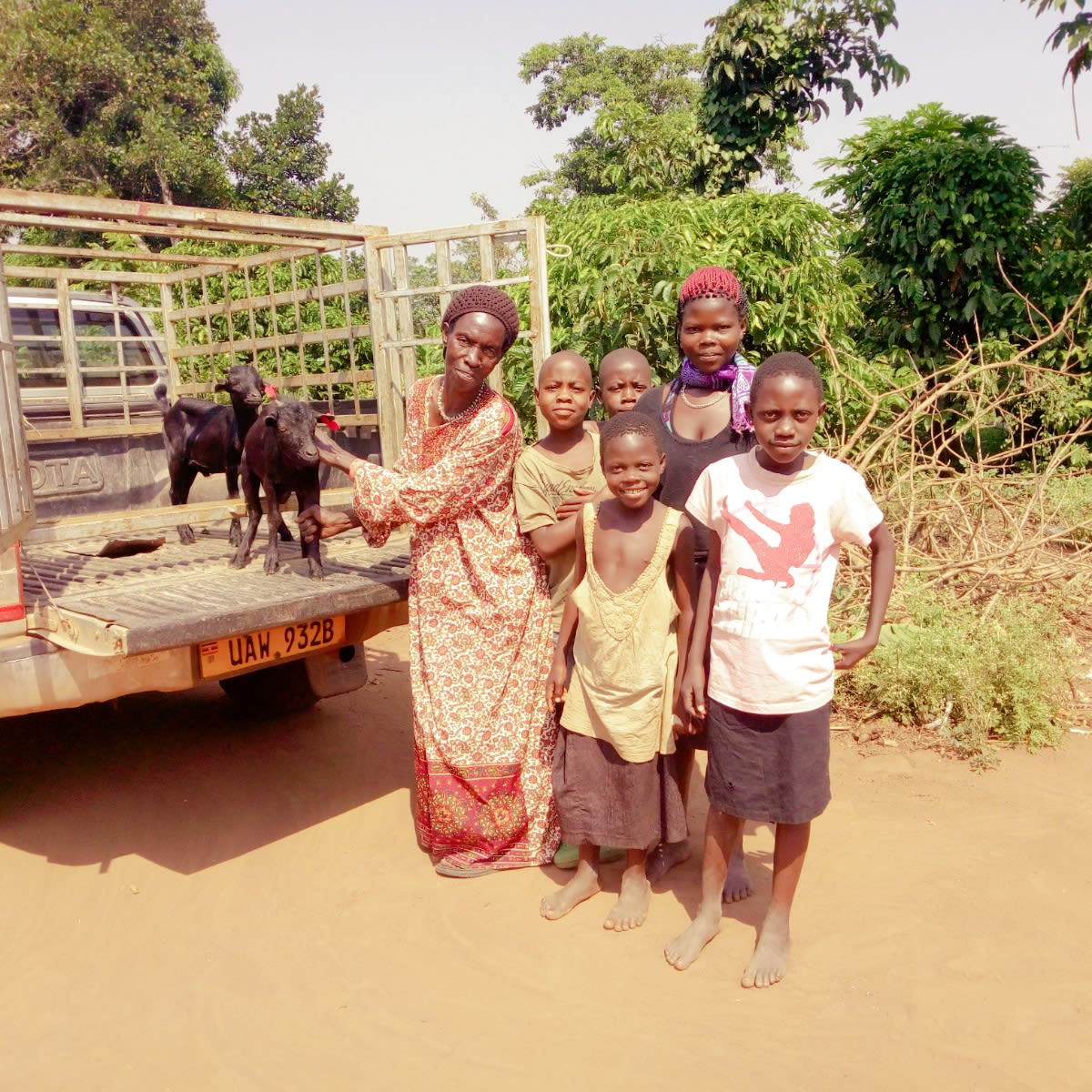
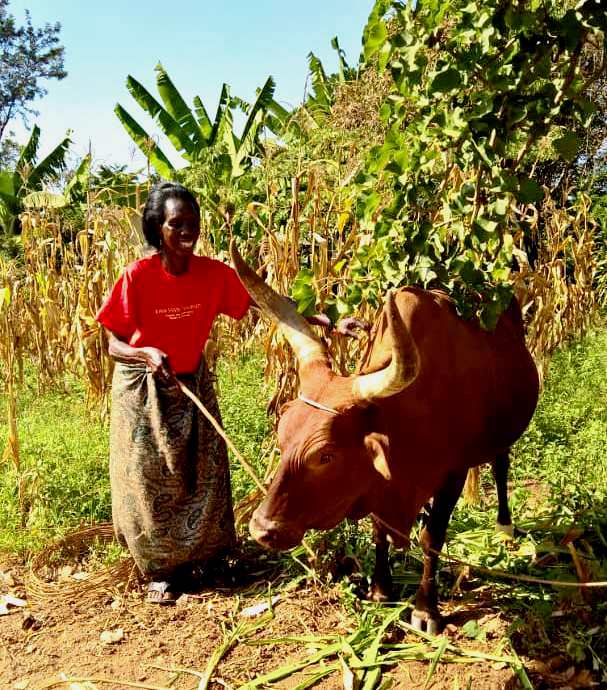
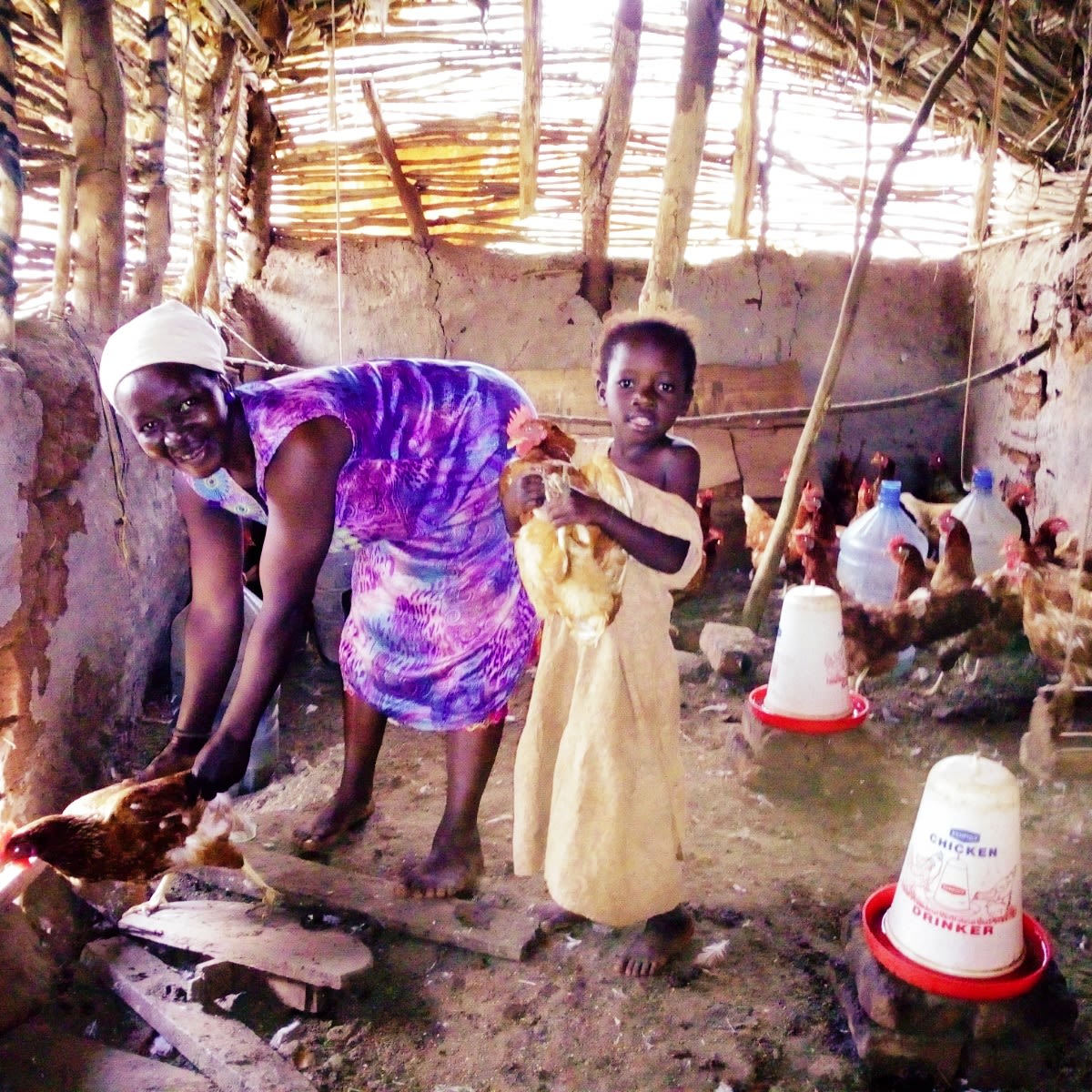
Extending the Benefits of Livestock
We want to thank all donors for your contributions to the CSRL Uganda Livestock Integration Program campaign. It is your generosity that made achievement of our $20,000 goal possible!
A consistent source of both nutrition and income, livestock plays a critical role in advancing the quality of life for Ugandan families. In Kamuli District, the center’s livestock program leverages Iowa State’s expertise in animal husbandry, agribusiness and extension to help the region’s poorest farmers — mostly women — start and run successful livestock enterprises. Thanks to you, farmers in Kamuli district will be adding chickens, goats, cows and pigs to their operations.
Still interested in helping to change the lives of men and women farmers, youth entrepreneurs and children in rural Uganda by supporting the expansion of livestock production, improved animal health and increased animal-source foods? This campaign remains open for contributions until 10:00a.m. on Friday, December 28, 2018.
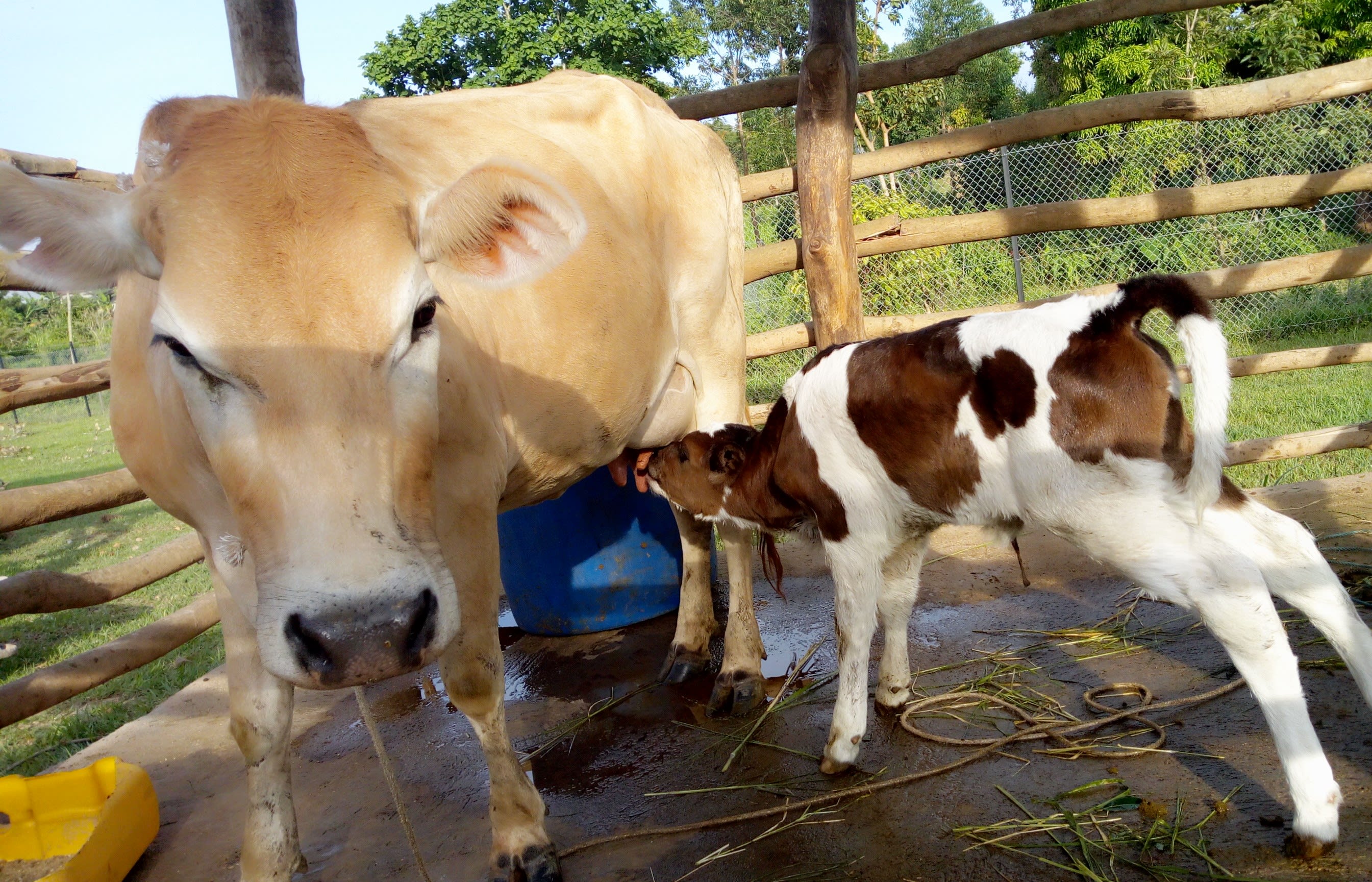
Besi Balwana's Story
An livestock integration impact story:
Besi Balwana, a wife and the mother of six children, is a successful poultry farmer. Now raising her second batch of commercial layers, her commitment to livestock has significantly improved her family’s quality of life. But her success didn’t happen overnight – it took years of hard work. Balwana’s rise from poverty started in 2013 when her youngest child, Simon, suffered from malnutrition. She sought help from and was admitted to her local Nutrition Education Center. Within a year, Simon recovered and his mother graduated from the NEC training program. Balwana’s regular attendance and adherence to the NEC protocol earned her a spot in the poultry microfinance program.
In August 2014, Balwana established her poultry enterprise. With the income she earned from egg sales and selling birds, she repaid 87 percent of her loan and invested in improving her poultry house. Service-learning students helped her add a tin roof, more lighting and better ventilation. In summer 2014, Balwani received her second round of poultry. Now an experienced poultry farmer, she oversees the hatching of new chicks on her own. Balwana’s transition to livestock has provided school fees for her children, and the entire family consumes a healthy, diversified diet that includes protein from eggs. For the first time, they can afford medical care. They own a goat, rabbits and a sow. Perhaps most telling of the family’s new status is their ability to save money for the first time. While most farmers in developing countries grow crops, raising livestock is what really makes a significant difference in food security and farmer resilience. Collaborating with experts from Iowa State and Makerere University, the center has successfully integrated poultry, pigs and goats into the region’s farming and school activities, Nutrition Education Centers and Youth Entrepreneurship Program.
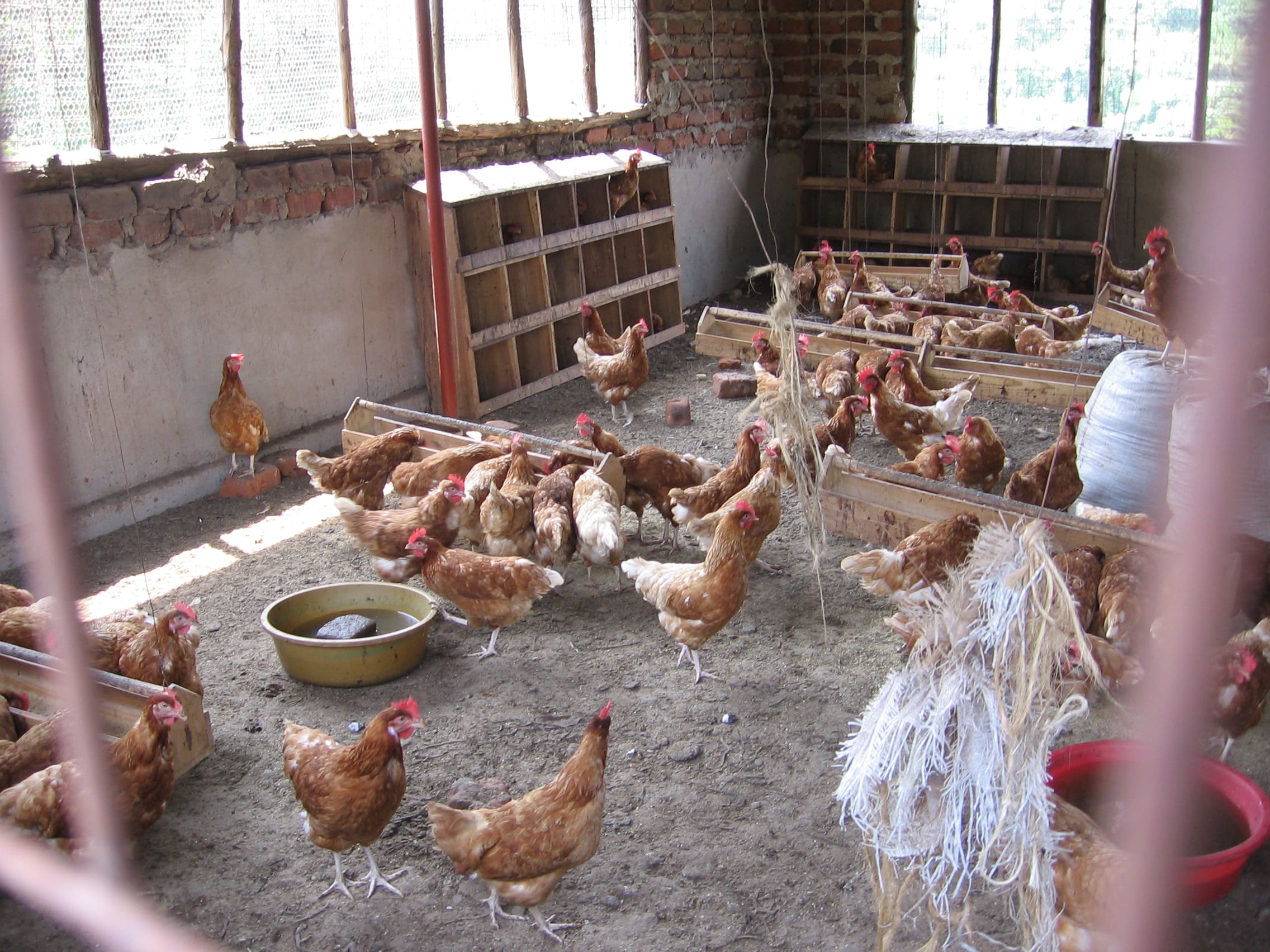
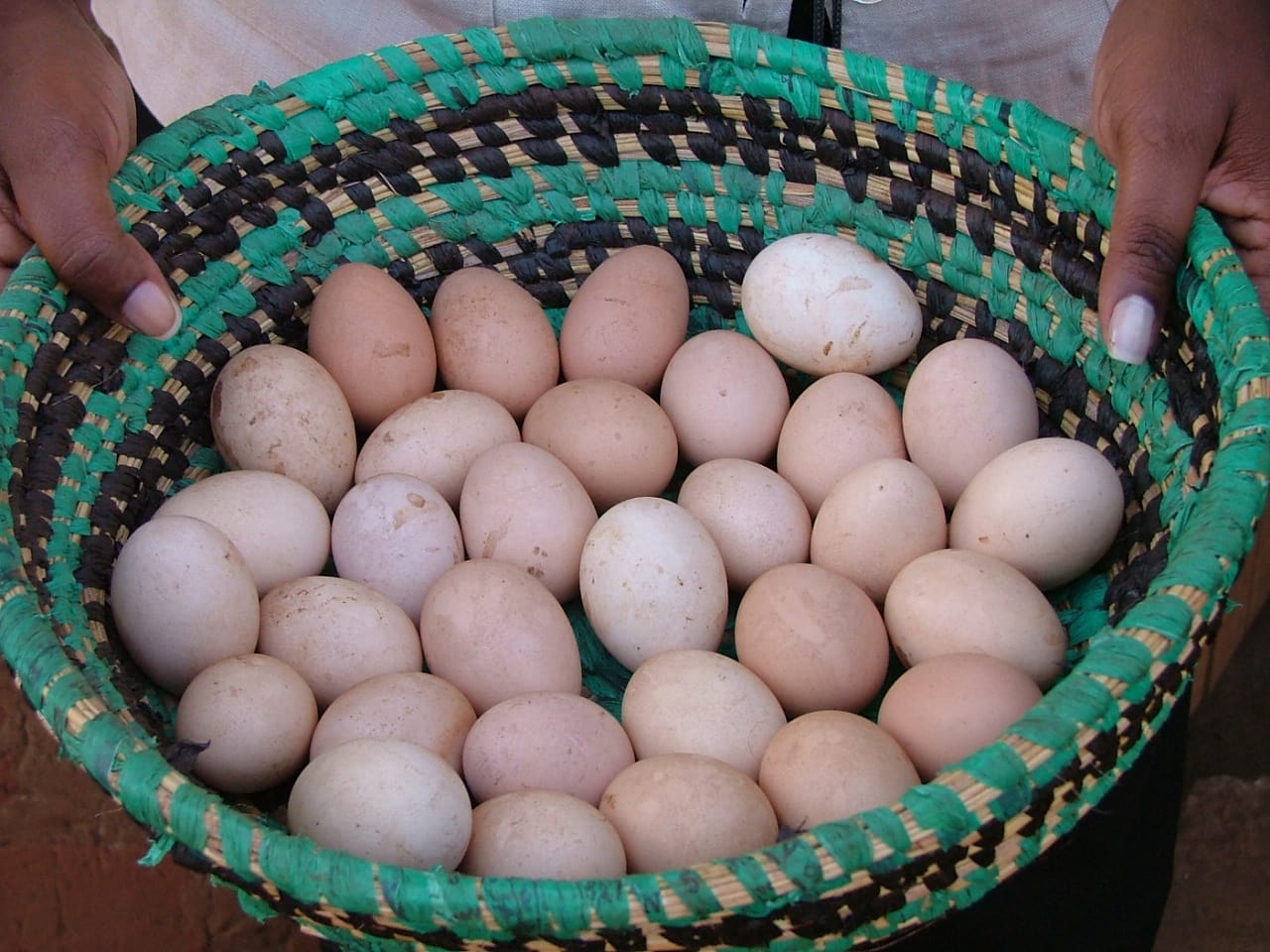
Christine Lubaale's Story
An livestock integration impact story:
Christine Lubaale has been a leader in her Kamuli District community for many years. Widowed in 1992, she trained as an HIV counselor in 1999 and began working with the Center for Sustainable Rural Livelihoods (CSRL) in 2004 to train community members on modern agricultural practices.
Through the CSRL, Lubaale was among an initial group to receive two piglets — a male and a female. She also received help with housing for her pigs, on the condition that when the sow gave birth, she would give four piglets to four members of her training group, thereby spreading the program and generating more income for the community.
Lubaale’s pigs not only delivered their income-producing offspring; they also made possible dramatic improvements in Lubaale’s life and the lives of her eight children. She used the initial proceeds from her piglet sales to pay her children’s school fees. Next came a better house, then the purchase of a cow, expansion of her piggery, input loans from the CSRL and more plans for the future. In 2016, Lubaale joined the crafts project and has become a leader there as well, serving as the group’s chairperson and training others on how to weave better baskets. “I am known now as a designer,” she says. “I am famous and popular, and I no longer belong to the class of people who suffer.”
What makes Lubaale most proud is her son, Samuel Ikendi, now 30. In a recent report charting his scholastic achievements, Ikendi listed the profound changes in his life after his mother was introduced to the livestock program in 2004: “No more hunger. Malnutrition gone. Rise in income. Attend school. Excel in exams. Attend university. Increase in assets. Taste of happiness.” Ikendi graduated from Makerere University in 2012 with a degree in agricultural management, an interest he credits to his mother’s piggery and garden. Three years later he joined CSRL as a volunteer working with service learning students. And then in 2016, Ikendi applied to graduate school at ISU, where he was accepted into the master’s degree program in community and regional planning and sustainable agriculture. He is one of 17 former service learners in graduate school or who have completed graduate school at ISU.
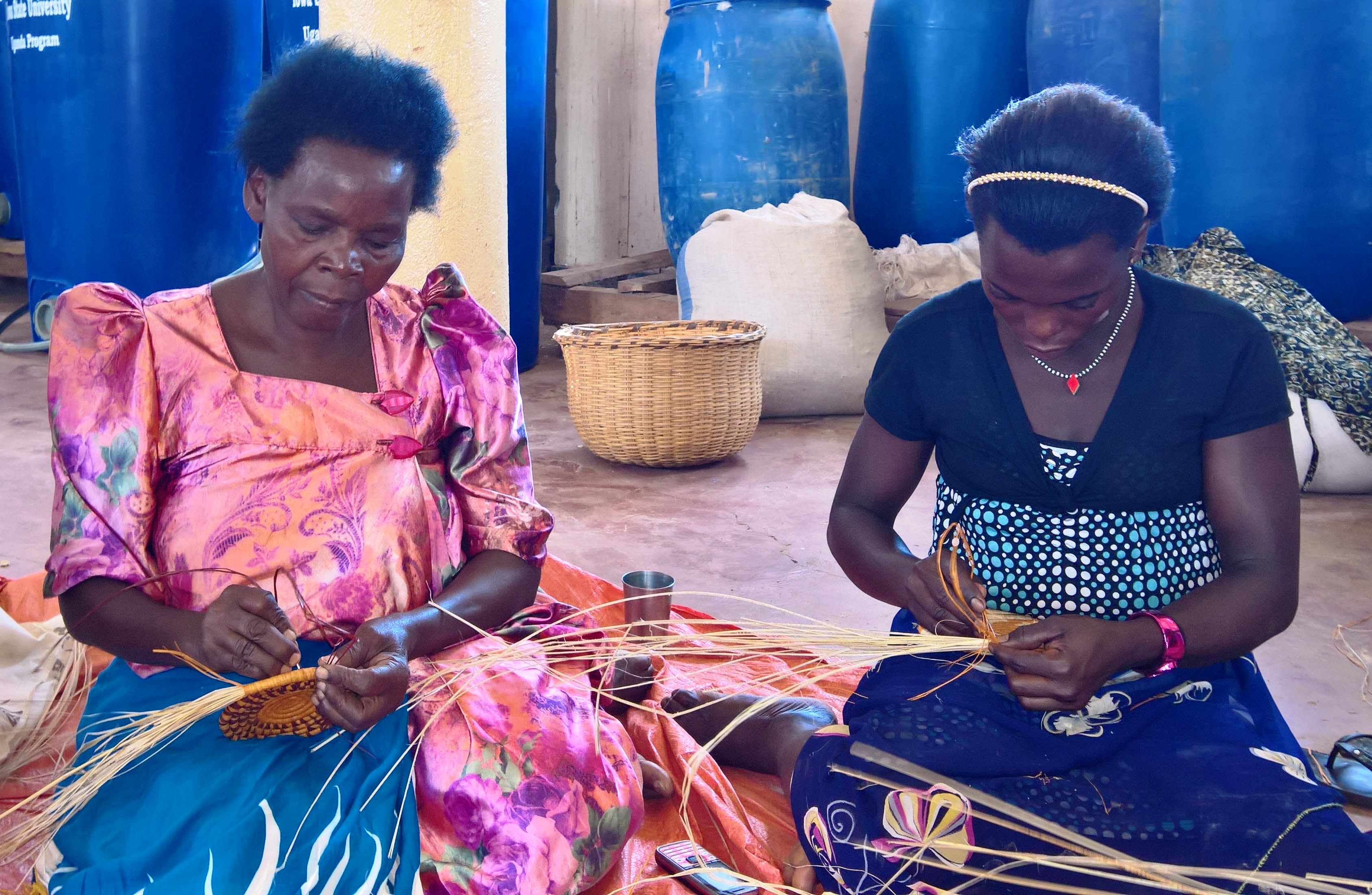
The Importance of Livestock Integration
While most farmers in developing countries grow crops, raising livestock is what really moves the needle toward food security, poverty alleviation and farmer resilience. “If a woman farmer just raises corn, she is in serious trouble when there is a drought. But if she has livestock, she can use it to pay for food, medicine and other necessities. Livestock is like an agricultural bank,” says Max Rothschild, Iowa State Distinguished Professor in Agriculture and M.E. Ensminger International Chair. Livestock also improves nutrition as animal sourced foods provide essential protein, amino acids and other nutrients that are essential to health but are missing from most Ugandan’s diets. Livestock also supplies manure and draft power for crop production.
Gaining Ground
Starting in 2004, the center has introduced a variety of livestock to Kamuli District including goats, pigs and poultry. Farmer-to-farmer outreach programs have trained almost 500 farmers in animal husbandry, disease management and other livestock management skills. And for the past few years, Uganda-based Dr. Gideon Nadiope, the national director for the center, has worked side-by-side with farmers to advance livestock production despite the region’s challenges. “There are limited amounts of water and quality feed. Everything depends on that,” says Rothschild. For instance: A cow capable of producing many liters of milk per day will only produce two liters if that’s what her food and water intake equate to. That’s why it’s essential, says Rothschild, to help farmers better feed and water the animals. Overcoming these and other obstacles to production, an increasing number of Kamuli District farmers have realized success. Rose Namuyomba, for example, has been a pig farmer since 2005. The single mother of nine children, Namuyomba has marketed pigs, boosting her income and allowing her to expand her operation. Today she has more than 50 pigs and 20 chickens. She has built a kitchen, purchased iron sheets for the roof of her house and is able to meet household expenses. Namuyomba plans to expand her chicken flock to 200.
Please consider a financial contribution to support the expansion of livestock production, improved animal health and increased animal-source foods in Kamuli District, Uganda.
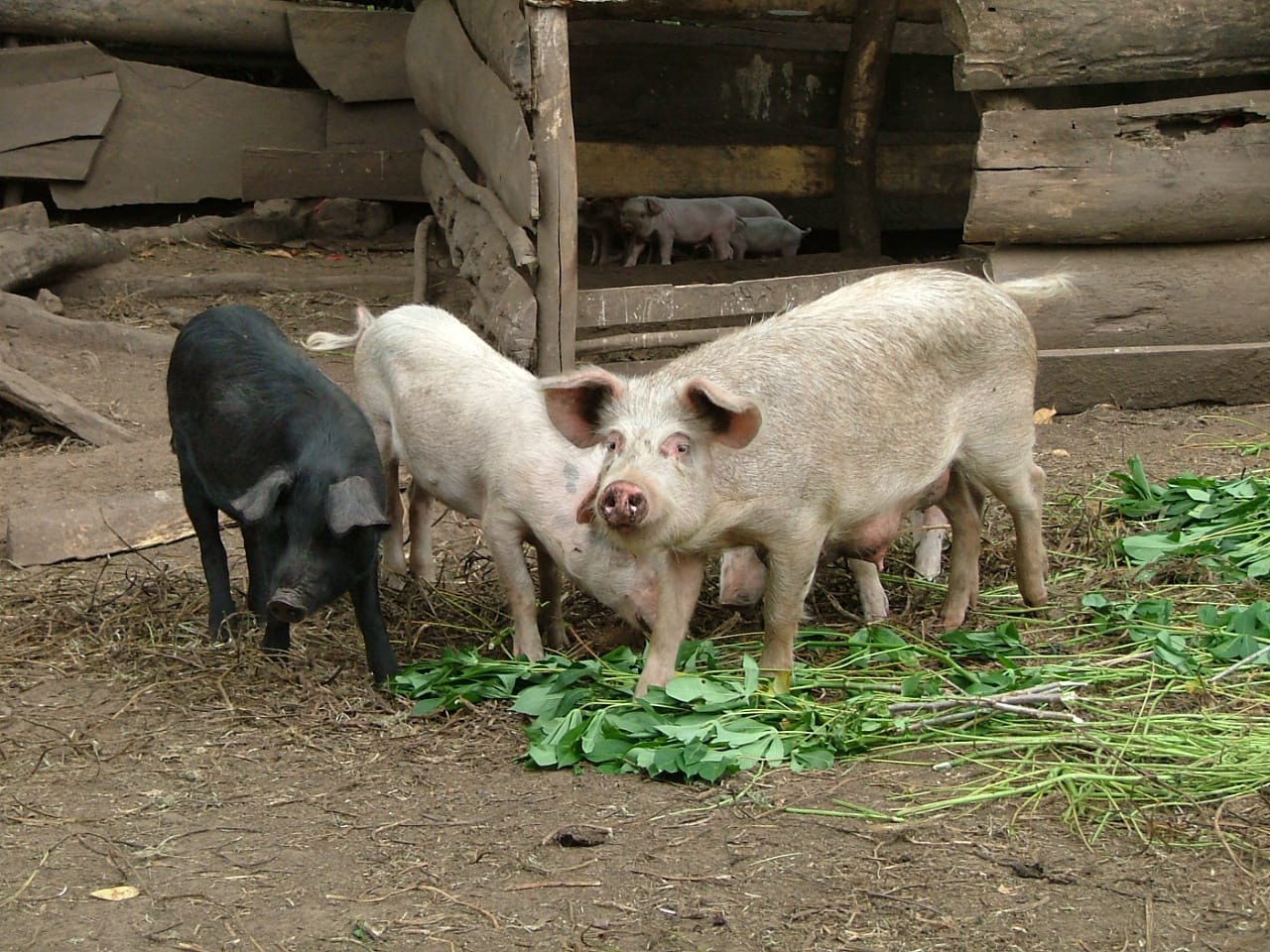
$10
First Comes The Egg
Contribute funds to buy 8 chicks to help a small farmer get a quick start. This donation combined with others will help supply chicks to replace older birds after they have quit laying.
$25
Help Carry the Load
Jerry cans are ubiquitous to Uganda as well as many other African countries. They are used to store and transport just about any kind of liquid. In the case of the ISU Livestock Integration Project, they are utilized for fetching water for chickens, pigs, goats and cows to help them grow and produce.
$50
Rain Water Collection
Catching rain water is one way to get water for daily household use and it saves many hours of time from fetching and hauling it back from the borehole. A small system of rain gutters and a small barrel can catch 1-2 days of water after a rain.
$100
It's Only Chicken Feed
Feed (at times) is quite expensive for chicken or pig operations. One hundred dollars will help pay for a significant amount of feed to help at the school poultry unit or for a group of women farmers.
$250
Education, The Path To Success
Help train 20 farmers in better ways to manage their livestock. This gift provides for transportation and a full day of training to improve livestock production and marketing.
$300
Help Someone Get Their Goat
Goat farming is one way to get farmers on the path to economic security. Buying a goat also requires building an enclosure and vaccinating the goat and treating it routinely to avoid parasites. This funding will start one farmer on his or her path to sustainable food production.
$800
Little Piggy Went To Market
In Uganda, pork is in higher demand than any other animal source food. However, starting a pig farm requires more than a few pigs. Initial feed, vaccinations and a biosecure shelter helps pigs to get a good start. Once pigs are doing well they can be sold to pay for school fees, buy food and supplies for the household, or to pay for doctor bills. This money will start one farmer on the path to economic success.
$1,000
No More Hauling Water!
Building an above ground water tank to catch rain in the rainy season alleviates the need to carry water for livestock or the household for several months. This allows children to stay in school and gives women more time for their families, their gardens, and other activities.
